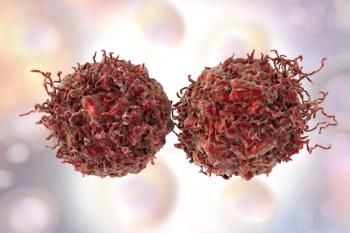
Patients who underwent prospective surveillance with bioimpedance spectroscopy were less likely to develop chronic breast cancer–related lymphedema compared with patients who were assessed with tape measure.

Patients who underwent prospective surveillance with bioimpedance spectroscopy were less likely to develop chronic breast cancer–related lymphedema compared with patients who were assessed with tape measure.

Advocacy and opposition continue to grow regarding the National Organization of Nurse Practitioner Faculties’ goal of requiring the Doctor of Nursing Practice degree (DNP) for entry-level nurse practitioners.

Adding the immunotherapy to chemotherapy in the frontline setting may improve overall survival for patients with advanced biliary tract cancer.

PARP inhibitors emerge as frontline treatment in metastatic castration-resistant prostate cancer, immunotherapy combinations improve quality of life in advanced renal cell carcinoma, and antibody drug conjugates show promise in cisplatin-ineligible urothelial cancer.

Ivosidenib maintains quality of life in cholangiocarcinoma, immunotherapy outperforms chemotherapy in select gastric/gastroesophageal junction adenocarcinoma, and nivolumab induces high response rates are observed among patients with BRAF V600E–mutant metastatic colorectal cancer.

No system can properly flourish without constant efforts to diversify, and the nursing field is no exception.

Fixing the problem will involve holding medical institutions accountable for addressing implicit bias among providers.

Special protocols are required to ensure the safety of patients undergoing bone marrow transplants.

Oncology nurses must assess the total pain of their patients by considering the physical, psychological, social, emotional, and spiritual elements.

Evolving technology and adaptability allow for a more patient-centric approach to clinical trials; however, there are some limitations.

Inclusion has to be an intentional part of the plan as strategies to diversify the nursing field are adopted.